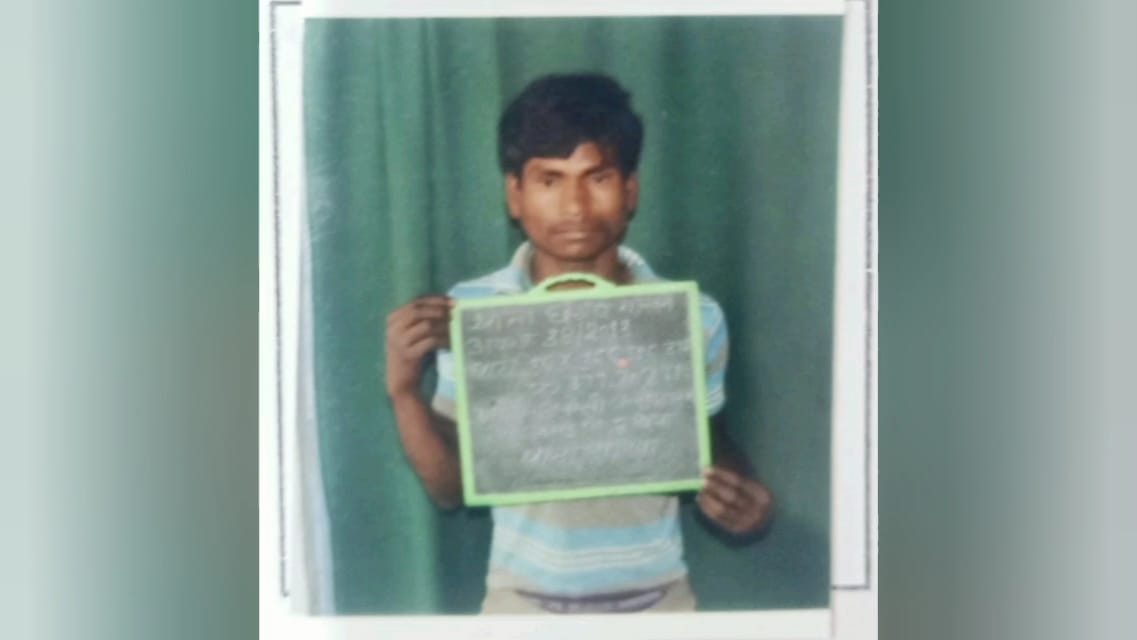The Shocking Case of Death Sentence: 11 Years of Injustice and the Fight for the Truth

But in March of this year, Khargone District Court finally recognised the truth: he was innocent. Overturning his conviction, the court stated that the evidence was misinterpreted and that another person had committed the crime. The man was acquitted.
As reported by BBC Hindi Report, when Anokhilal was released from prison after 11 long years, he was greeted by relatives, but he could barely recognise them. He had even forgotten his mother tongue, Korku, because of his long incarceration. "I forgot so much in these 11 years," he says, though he is slowly regaining his memories.
He spent 11 years — 4,033 days — on death row, convicted for a crime he did not commit. His case passed through five different courts, with the death penalty being pronounced three times. In the sixth trial, the Khargone District Court acquitted him. Flawed Probe: A Death Sentence Based on Doubtful Evidence Why did it take so long for justice to prevail? What impact did this prolonged legal process have on both the accused and the victim’s family?When Anokhilal first heard of his death sentence, according to the report, he was in a state of shock. “I went numb. I could not think. It took me time to process it,” he recalls. At that time, the police claimed the case was difficult, with no direct eyewitness and circumstantial evidence, with the DNA report being the only crucial evidence.
Despite the speed of the trial, many legal experts questioned whether justice had truly been served. Lawyer Jai Nagda presented a report that pointed out serious flaws in the handling of the case.
The case had many inconsistencies, which were overlooked by the courts during the hearings. Over the years, the defense presented these flaws in a petition to the High Court, demanding that experts be called in to testify about the evidence. The case was sent back to the trial court in 2022, revisiting its origins in 2013.
The crucial flaw? The DNA report from the victim’s body did not match Anokhilal’s. Instead, it matched the DNA of another man. While earlier courts had accepted that the DNA belonged to an unidentified male, the final court ruling emphasised that the DNA did not belong to Anokhilal, undermining the case against him.
The court also raised serious doubts about the integrity of the physical evidence, suggesting possible tampering by the police. The local court that had sentenced him to death in 2013 and 2022 eventually acquitted him. Flaws in Forensic Evidence Shreya Rastogi, a lawyer and a member of Project-39A, who took up Anokhilal’s case, says the forensic evidence was never properly examined until they became involved. "There is a lack of understanding of forensics and DNA analysis in India," she explains. "There needs to be better training for police, lawyers and judges."
A significant number of death row cases in India have seen acquittals or reduced sentences. Between 2000 and 2015, 443 out of 1,498 death sentences were overturned, raising serious questions about the reliability of the investigation and judicial process. The Victim’s Family: A Father’s Grief and Anger Meanwhile, the victim’s father, living hundreds of kilometers away, had no idea that Anokhilal had been acquitted. He learned of the decision from an unknown caller. "They sentenced him to death to calm our anger, but now he is free. The system is filled with careless people," he reportedly said in trembling voice with deep sorrow and anger.
He also expressed his frustrations about how the justice system failed him. "If only I had money, I coul have hired a good lawyer," he said. For him, the pain of losing his daughter is still raw. Anokhilal’s Struggles with Life After Prison Anokhilal’s life after his release has not been easy. Now, working in various manual jobs in Madhya Pradesh, he has withdrawn from social life. He rarely goes out at night and only leaves his room for work during the day. He still lives in a rented room with a friend.
"I have lost touch with my old friends. I do not have time for them anymore," Anokhilal says. He now focuses on repaying the debts his family incurred during his trial, hoping to make a fresh start.
However, the biggest question remains: who was the real criminal? Despite Anokhilal’s acquittal, the real culprits are still at large. The Big Question: Who Is the Real Criminal? Even after Anokhilal’s acquittal, the biggest question remains: who was the true perpetrator of the crime? As the case reveals systemic flaws, the search for justice continues—not only for Anokhilal but for the victim and her family as well.
His case is a chilling reflection of how justice can sometimes be blind, even when lives hang in the balance.
